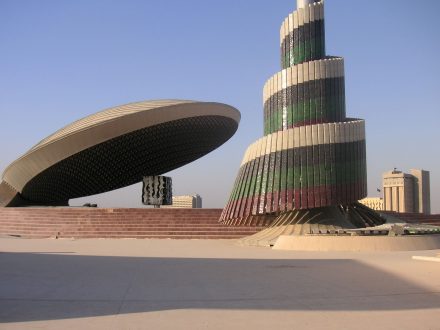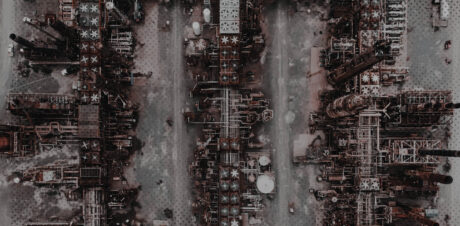The New York Times Magazine published an article last week covering what the author calls the Iraqi kleptocracy — a structure unintentionally reinforced by a yearly injection of cash from the United States into Iraq’s banking sector. In light of this reporting, we are sharing our report from last month about an Iraqi banker who currently controls businesses across the Middle East, despite helping Saddam Hussein skirt UN sanctions from the 1990s into the early 2000s
Iraq’s Dollar Auction and Its Consequences — According to The New York Times Magazine
As a carryover from the 2003 invasion of Iraq, the U.S. Government provides the Iraqi government with $1-2 billion of cash every year. Iraq’s Central Bank disburses this cash to commercial banks throughout the country through a system known as the dollar auction. The banks use these dollars to pay foreign exporters so that Iraqi businesspeople can import goods.
The ecosystem through which the U.S. provides dollars to Iraqi banks has been compromised by nefarious actors including corrupt Iraqi businesspeople, foreign and domestic terrorists, and Iraqi militias. These groups and individuals, many of whom obtained illicit funds through contract fraud or kickbacks, use front companies and invoice fraud to acquire U.S. dollars from the banks that have them. These schemes are often conducted with tacit approval of Central Bank officials, making them complicit.
Sayari Reports on a Prominent Iraqi Banker with Ties to Saddam Hussein
Last month Sayari reported on Wadih Al-Handal, an Iraqi Banker who holds an influential position in Iraq’s finance sector. Al-Handal helped Saddam Hussein skirt UN sanctions by smuggling goods into Iraq through numerous front companies named by the CIA in a 2007 report. Al-Handal’s business network continued growing after the U.S. invasion and the subsequent removal of UN sanctions in 2003, according to public records and Arabic media.
Wadih Al-Handal is the head of the Iraqi Private Banks League and is regularly photographed with high-ranking officials including the Chairman of Iraq’s Central Bank. The Al-Handal family owns and operates Baghdad-based Ashour International Bank for Investment in addition to businesses across the Middle East.
Sayari’s report highlights the efficacy of matching publicly released government documents with corporate records to track a known associate of Saddam Hussein and a smuggler who continues to grow business operations across the region. By mapping his network with links to Saddam and past sanctions evasion schemes, our clients can better understand how to manage and reduce their exposure to risky networks using public records.
Click here to access the full report.



